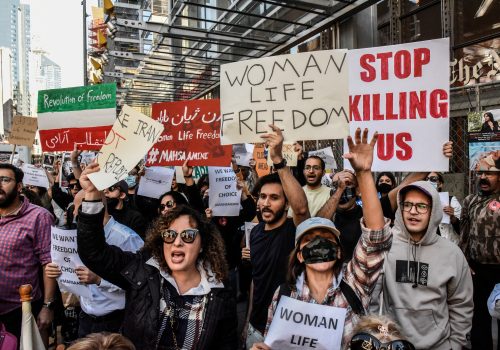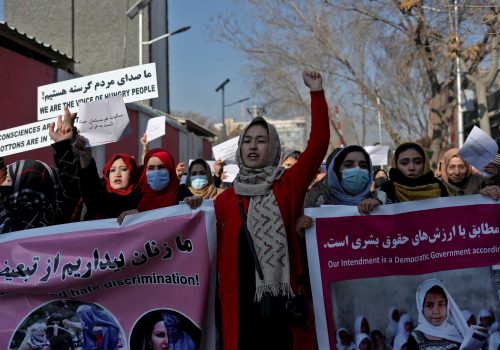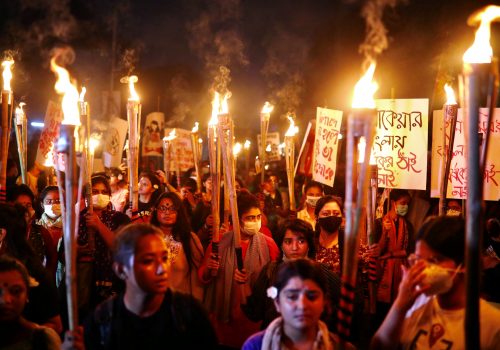The future of women in India: Barriers, facilitators and opportunities
The barriers South Asian women face in the workforce are deep and intersecting, including but not limited to: accessing digital technology; disruptions to supply chains; the dual burden of managing eldercare and childcare; limited physical and mental health services; and the increased risk of gender-based violence (GBV). These are key obstacles to women’s labor force participation, and all were exacerbated by the COVID-19 pandemic. According to a joint report published by the International Finance Corporation and the United Nations Entity for Gender Equality and the Empowerment of Women (UN Women), 35 percent of women entrepreneurs in India reported that they have suffered declining revenues due to COVID-19, and 72 percent of female small business owners in Sri Lanka reported experiencing difficulties accessing their usual financial services. The same report found that female job-loss rates resulting from COVID-19 are about 1.8 times higher than male job-loss rates globally.
Women’s participation and advancement in the labor force not only benefits women themselves, but also men, families, communities, and the entire nation. Despite this, women’s work is a minefield of visible and invisible barriers, rooted in inequality, patriarchy, and privilege. Global corporations, civil society, governments, and businesses across the South Asian region and the globe are committed and poised to support women’s advancement in the workplace, and are well positioned to accelerate and complement these efforts through direct investments and advocacy. But, first, two key areas must be explored, and they serve as the foci for this issue brief:
- Raise awareness of key economic challenges facing women across the region.
- Explore best practices and opportunities for addressing these pressing challenges.
To date, these efforts have been limited and/or siloed within particular domains and there is a paucity of scientific evidence pointing to how these efforts are effectively supporting women’s economic recovery.
This issue brief describes cross-cutting themes, a proposed theory of change, and recommendations that emerged from the Atlantic Council and US Department of State expert convening, “Future of Women and Work in South Asia.” The convening’s goal was to foster cross-sectoral collaboration and catalyze knowledge sharing to support women’s economic empowerment in South Asia. The project also aimed to elucidate strategies for increasing philanthropic and corporate investments to appropriately address the challenges and barriers women face.

The South Asia Center is the hub for the Atlantic Council’s analysis of the political, social, geographical, and cultural diversity of the region. At the intersection of South Asia and its geopolitics, SAC cultivates dialogue to shape policy and forge ties between the region and the global community.


